By Alireza Akbari

In a campus-wide email, Tetlow described the move as a source of “growing distress and anxiety,” admitting she had no power to reassure students affected by the Trump administration's campaign.
She noted that it came as part of a broader pattern of student visas being canceled without “explanation or notice” to either the university administration or to the students themselves.
University spokesperson Bob Howe also stated that Fordham was not informed of the reason behind the revocation by the Department of Homeland Security (DHS).
“The university does not believe that the student is connected to the protests at Fordham,” he said.
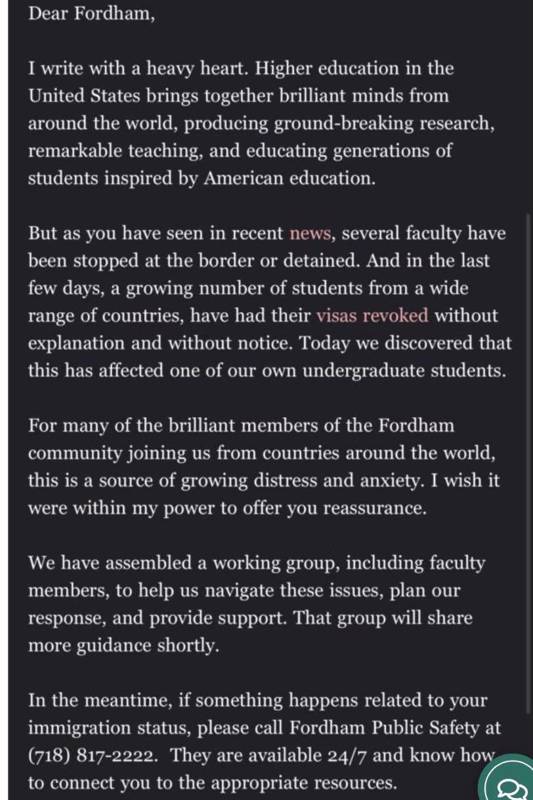
Following confirmation of the revocation, student organizations at Fordham, such as Students for Justice in Palestine (SJP), under the name Fordham SJP, called on the university to “publicly refuse cooperation with Immigration and Customs Enforcement (ICE) and the DHS in all forms.”
“We reject these attempts to suppress political expression and collaboration with state violence,” read the statement published on social media.
The group framed the visa revocation as “part of a broader campaign to criminalize dissent,” particularly targeting those who speak out against US imperialism and in support of Palestine.
The Fordham student’s visa revocation came just a month after the detention of Mahmoud Khalil, a green card holder and graduate student at Columbia University, who was arrested by ICE agents on March 8 at his New York City apartment.
Following Khalil’s detention, the Trump administration expanded its crackdown, resulting in the revocation of over 300 international student visas at universities across the country.
Among them, the University of California system reported nearly twenty visa cancellations, including cases at UCLA, UC San Diego, and UC Berkeley.
In many cases, students have been accused—without evidence—of supporting the Hamas resistance movement or posing vague “foreign policy” risks.
UC San Diego Chancellor Pradeep Khosla publicly criticized the visa cancellations, saying federal authorities provided no specific allegations and that students were given no opportunity to respond.
Harvard’s International Office similarly reported that affected students received no explanation for the revocations, which were carried out suddenly and without transparency or consistent legal justification.
Civil rights organizations, including the American Civil Liberties Union (ACLU) and the Middle East Studies Association, have condemned the visa cancellations as a violation of free speech and academic freedom, warning of the dangers in conflating peaceful political expression with extremism.
At the University of Wisconsin-Madison, at least 13 international students — including six current students and seven alumni on work extensions — have had their Student and Exchange Visitor Information System (SEVIS) records terminated, the university confirmed.
A SEVIS termination typically requires affected individuals to leave the US immediately.
UW-Madison stated that it had no role in the federal decision and has not observed any related law enforcement activity on campus.
The university also stated it has no reason to believe the terminations are linked to political engagement or free speech, though the exact reasons remain unknown.
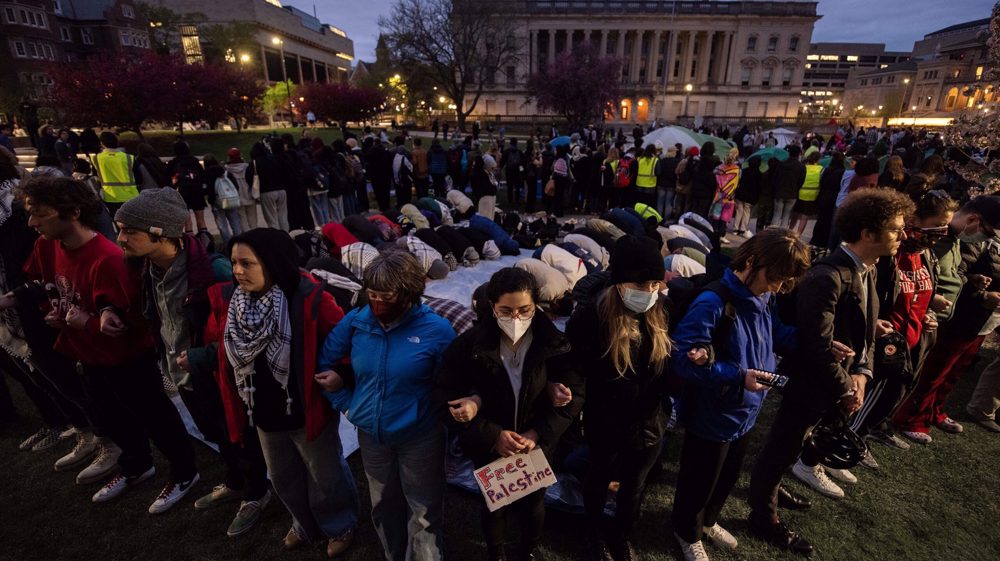
At least 50 international students at Arizona State University (ASU) have also had their visas revoked, and at least three are reported to have been detained.
According to Arizona Luminaria, the number of affected students has grown quickly from an initial report pf eight cases.
Senior attorney Ami Hutchinson of the Tucson-based law firm Green Evans-Schroeder, which is representing the students, said many are bewildered by the sudden and shocking action.
“They still seem to think that someone made a mistake. That it shouldn’t have happened and this was just all a misunderstanding,” Hutchinson said.“They’re really, really afraid,” she added.
One student has reportedly been held in immigration detention for about 10 days. While ASU declined to confirm the total number of students impacted, Hutchinson estimates that around 1,000 international student visas have been revoked across the country, based on information from immigration attorneys.
Initially, ASU officials said that the cancellations were related to “various legal infractions” and emphasized that they were not connected to campus protests. The identities of the affected students have not been made public.
In response, student organizations—including Students for Justice in Palestine at ASU—organized protests calling for greater protection and support for international students.
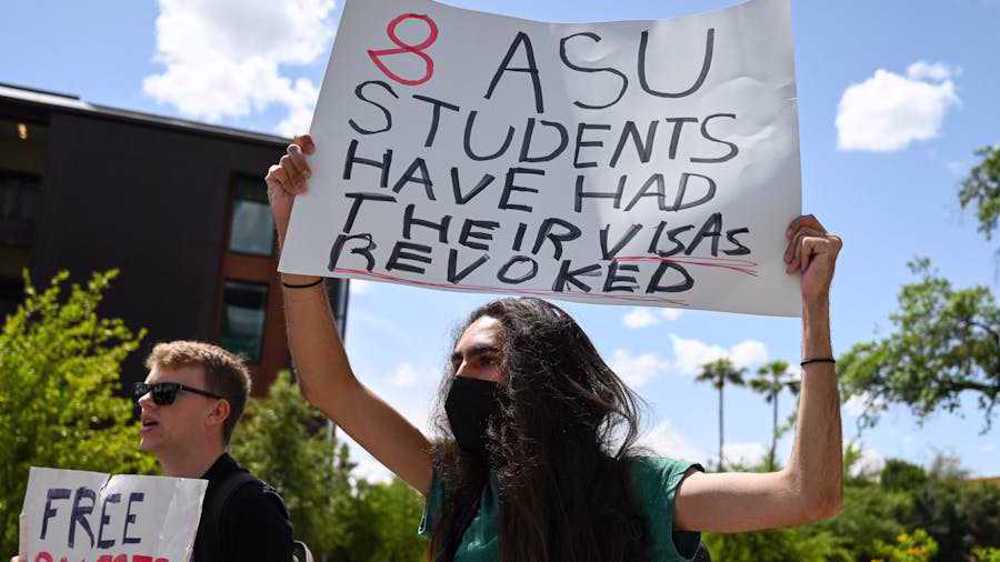
Dr. Rasha Alawieh, a 34-year-old assistant professor and kidney transplant specialist at Brown University, was detained upon her return from a trip to Lebanon and deported—despite holding a valid H-1B visa and a federal judge’s order temporarily halting her removal.
US authorities allege that Dr. Alawieh attended the funeral of Hezbollah’s late leader Sayyed Hassan Nasrallah in Beirut and had photos on her phone showing sympathy toward Hezbollah figures.
Dr. Alawieh maintains that her attendance was for religious reasons and not politically motivated.
Following her deportation, Brown University issued a travel advisory urging international students, faculty, and staff to reconsider or delay international travel due to uncertainty around reentry risks.
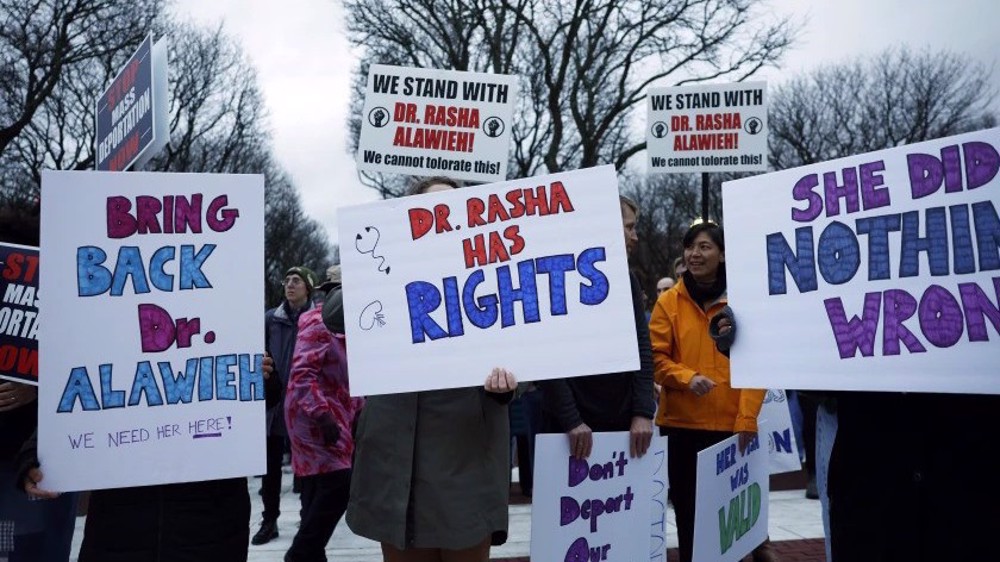
Khalil, who has been detained, now faces deportation proceedings. His arrest followed allegations related to his campus activism, though no criminal charges have been made public.
Ranjani Srinivasan, a 37-year-old doctoral student from India, left the US after her F-1 visa was revoked on March 5, reportedly due to her participation in pro-Palestinian demonstrations on campus.
Recent federal actions have led to the revocation of F-1 visas for 10 international students across Colorado State University (CSU) and the University of Colorado (CU) system.
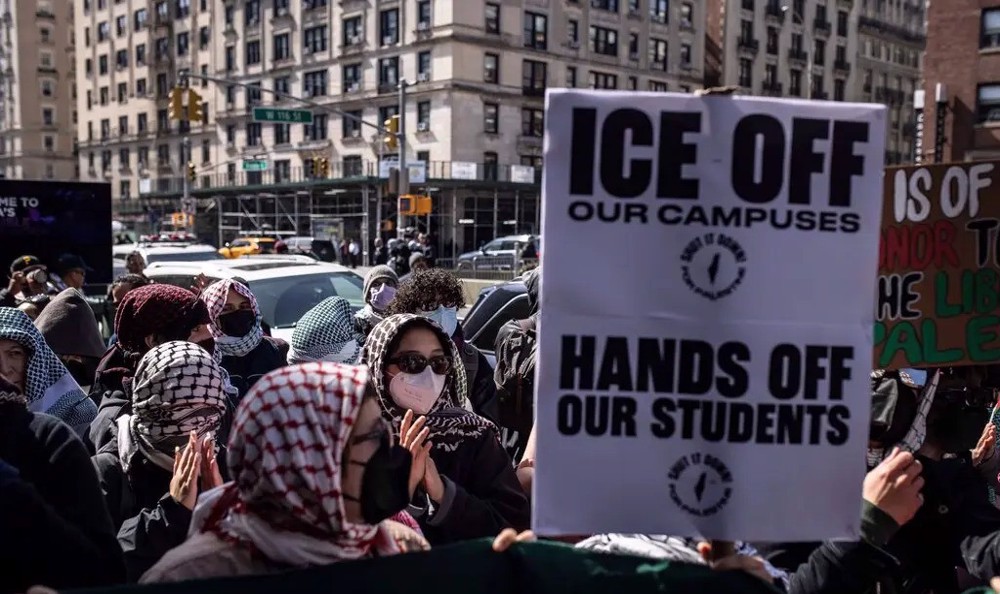
At CSU, six students have been affected, including five Kuwaiti nationals and one Saudi graduate student employed on campus. University officials have reportedly advised the impacted students to contact their respective embassies for assistance.
The University of Colorado reported four affected students across its Boulder and Colorado Springs campuses but declined to release additional details, citing privacy concerns.
At Cornell University, international students have also been caught in the wave of federal visa enforcement. Among them is Momodou Taal, a British-Gambian Ph.D. student in Africana Studies who was forced to leave the US after his visa was revoked in March 2025.
The US government cited his participation in “disruptive protests” and alleged that he had contributed to a hostile environment for Jewish students.
Taal, however, denied these allegations and said he chose to leave due to fears for his safety and the “lawlessness” of the Trump administration.
In response, Cornell University advised students who receive any communication regarding visa revocation to contact the Office of Global Learning’s International Services immediately for support.
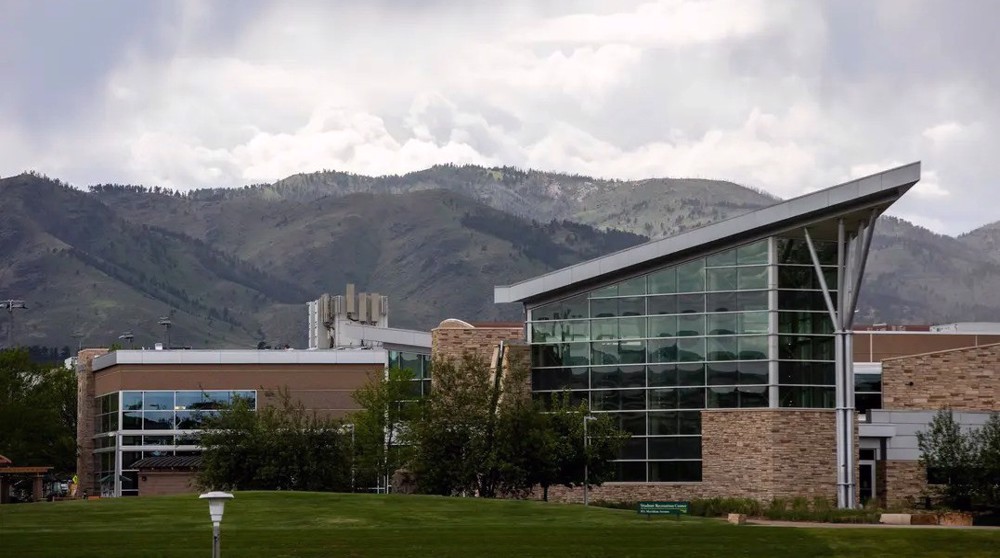
At Georgetown University, the recent detention of Dr. Badar Khan Suri, an Indian national and postdoctoral fellow, also raised significant concerns.
He was detained by ICE agents after his J-1 visa was revoked. The DHS accused him of disseminating “Hamas propaganda” and fostering antisemitism on social media—claims for which no evidence has yet been presented.
Dr. Suri, who is married to a Palestinian woman, is currently being held in a Texas detention facility under overcrowded conditions, and his academic work has been indefinitely suspended.
Following his arrest, his legal team filed a writ of habeas corpus challenging the legality of his detention.
On March 20, US District Judge Patricia Tolliver Giles issued an order temporarily blocking his deportation pending further court proceedings.
Georgetown’s School of Foreign Service expressed deep concern over his detention and emphasized the potential chilling effect on freedom of expression within academic institutions.
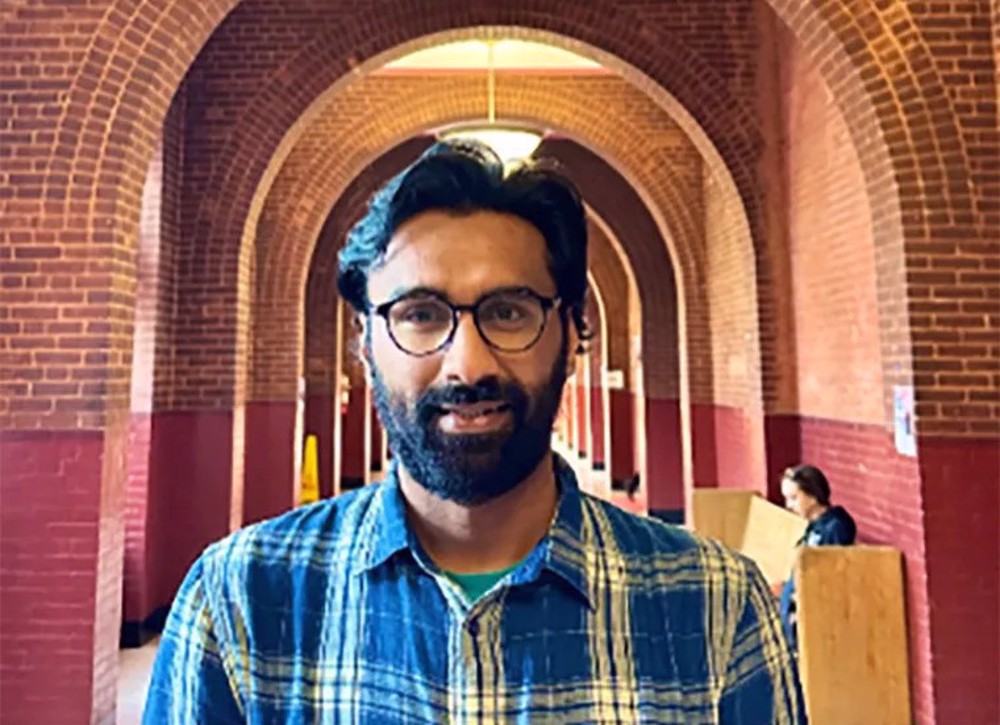
At NC State, two Saudi graduate students—including Saleh Al Gurad, who was studying engineering management and working on campus—had their visas abruptly revoked on March 25, without explanation or prior notification to the university.
According to his roommate, Al Gurad was apolitical and had no involvement in campus protests.
Both students chose to leave the US voluntarily to avoid possible detention. The university offered assistance to help them complete their semester remotely.
NC State officials expressed deep concern over the lack of communication from federal agencies and the sudden impact these actions have had on its international student community.
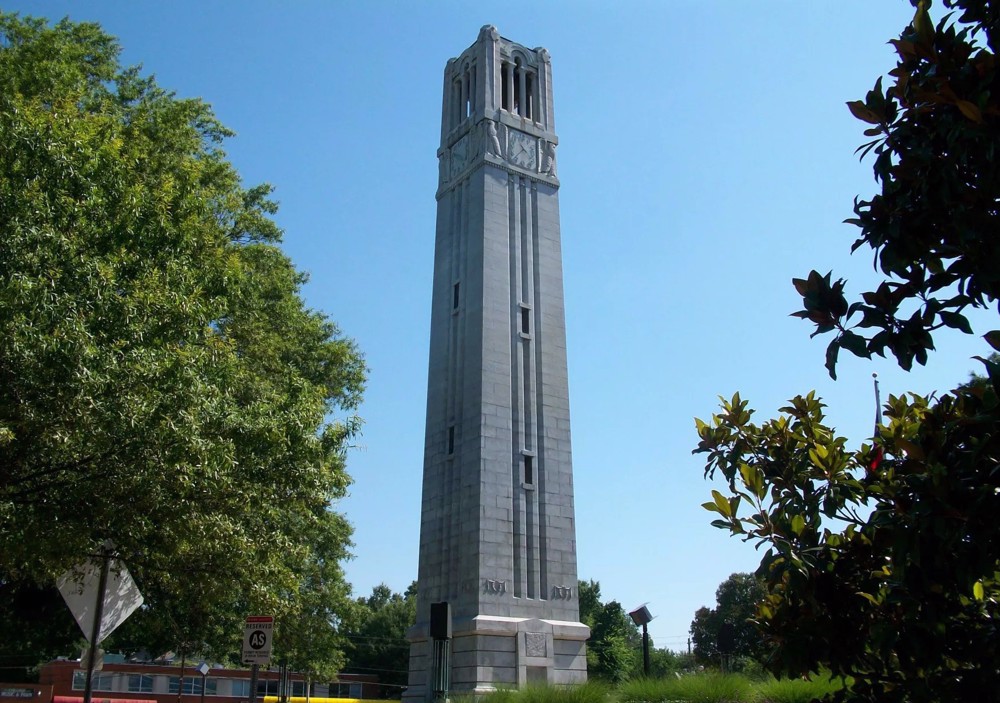
At Southern Illinois University, an international student’s visa was revoked on March 28, as confirmed by university officials.
The federal government did not provide a reason for the action, and the student’s identity and country of origin have not been disclosed.
In response, SIU’s administration issued a memo to its international students, advising them to carry photocopies of immigration documents, maintain proof of enrollment and US residence, and exercise discretion on social media and during political demonstrations.
The incident has sparked anxiety across SIU’s international community, with university officials stressing the potential immigration risks tied to protest participation and online activity.
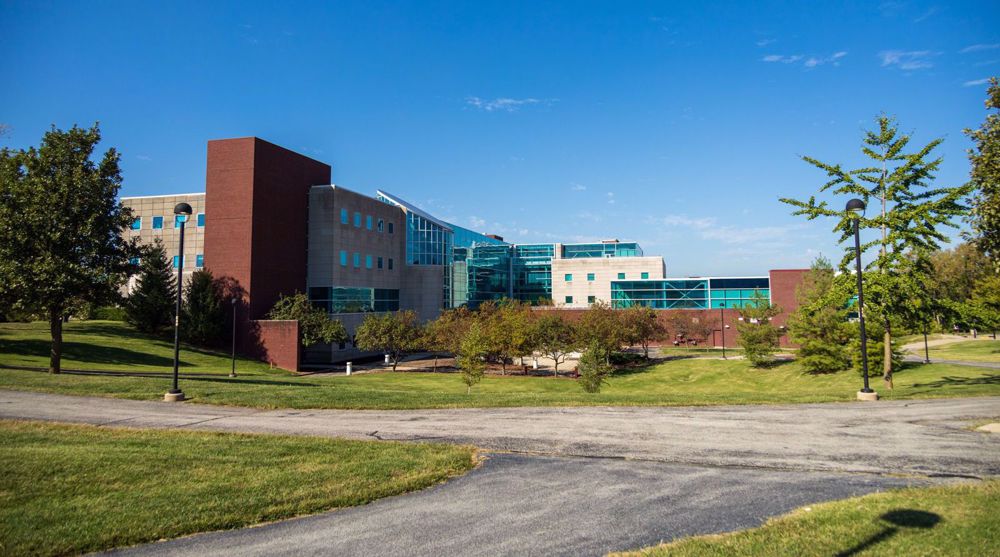
At Temple University, an unnamed international student had their visa revoked by the US Department of State for unspecified reasons.
The student learned of the revocation only after being notified by Temple’s Office of Global Engagement and chose to return to their home country voluntarily.
Although no evidence or formal allegations were disclosed, advocacy groups like CAIR-Philadelphia have voiced concern that the action may be linked to anti-genocide or pro-Palestinian activism—mirroring a broader Trump administration’s pattern of targeting pro-Palestinian activism.
Temple’s Office of Global Engagement provided the student with legal counsel and facilitated communication with officials from the student’s home country.
In a campus-wide message, University President John Fry reaffirmed Temple’s commitment to its international student community and noted that no other student records had been altered at that time.
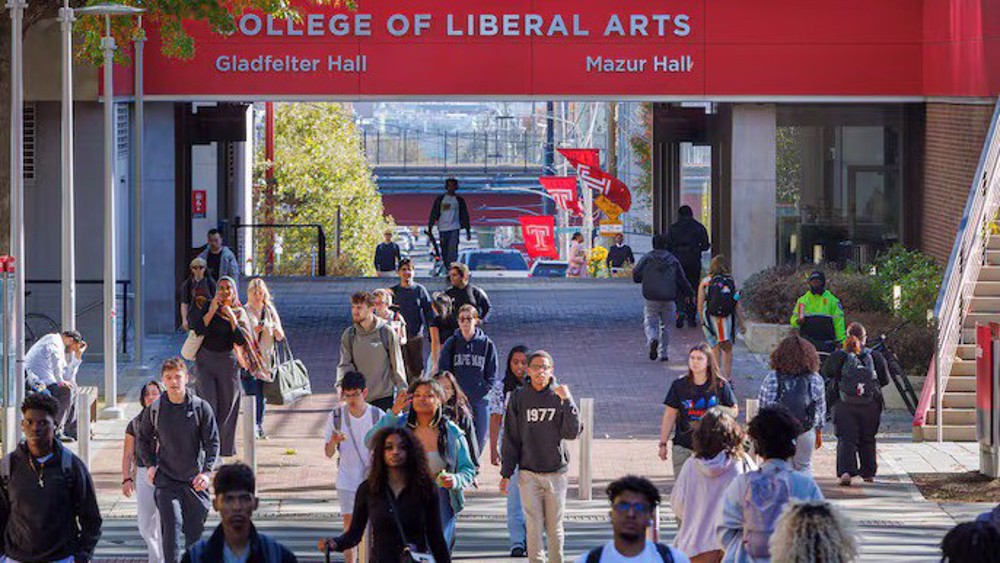
At Tufts University, Rumeysa Öztürk, a Turkish Ph.D. student and Fulbright Scholar, was also detained by ICE on March 25 while leaving her apartment to attend an Iftar dinner.
Öztürk’s visa was revoked shortly afterward, reportedly in connection with an Op-Ed she co-authored in The Tufts Daily, in which she criticized the Israeli regime and called for divestment from companies linked to Israeli acts of aggression in Gaza.
The DHS further claimed her visa was revoked due to support for Hamas. However, Öztürk has not been formally charged with any crime and remains in a Louisiana detention center.
Tufts University publicly condemned her detention, describing her as a valued member of the community who was in good academic and immigration standing at the time of her arrest.
University President Sunil Kumar stated that Tufts had no prior knowledge of her visa cancellation and reaffirmed the institution’s support for her and other international students.
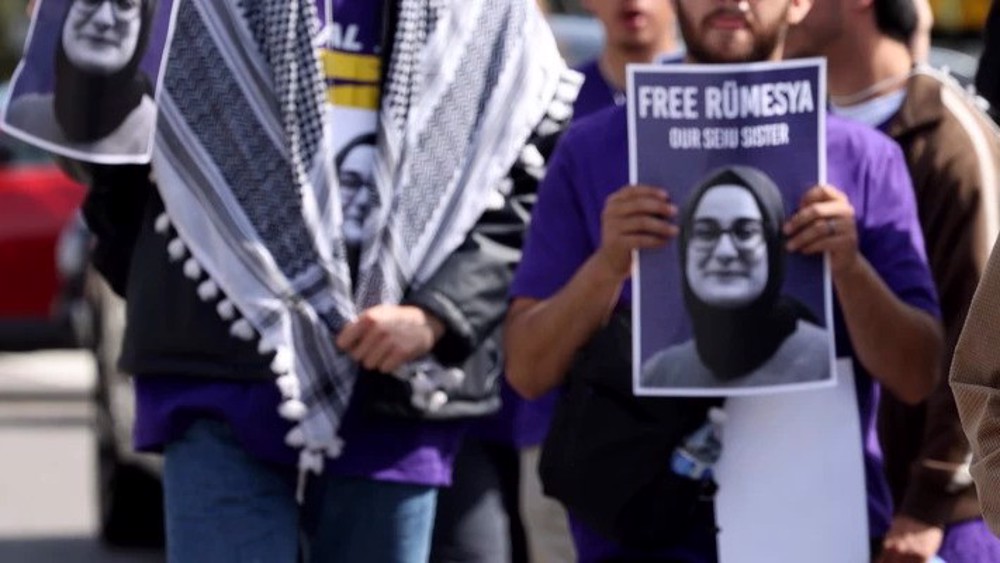
At the University of California, Los Angeles (UCLA), recent federal actions led to the revocation of several student visas, causing widespread concern across campus.
At least six international students had their visas revoked under unclear circumstances, reportedly linked to arrests or minor convictions, according to campus sources.
Chancellor Julio Frenk confirmed that the Trump administration revoked the F-1 visas of six current students and six former students who were participating in the Optional Practical Training (OPT) program—a federal initiative that allows international graduates to gain work experience in their field of study.
Frenk acknowledged the uncertainty these actions have created within the UCLA community and emphasized the university’s commitment to supporting its international students.
Faculty groups have also raised alarm over the lack of transparency and the possibility that students are being targeted based on racial or political profiling.
Similar cases across the country have involved accusations tied to activism-related visa violations.
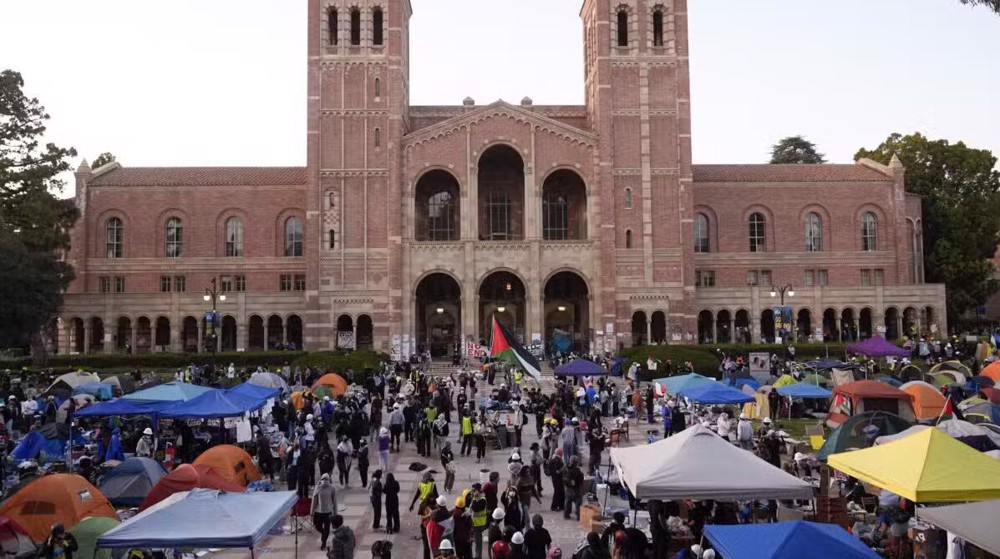
At the University of Alabama, the March 25 detention of Alireza Doroudi, an Iranian doctoral student in mechanical engineering, has sparked outrage.
Doroudi was arrested by ICE agents at his home early in the morning and later transferred to the Jena-LaSalle Detention Facility in Louisiana, a site previously criticized for human rights violations.
According to the DHS, Doroudi poses “significant national security concerns,” though no formal charges or evidence have been presented.
His attorney, David Rozas, stated that Doroudi has not been involved in any criminal activity or political protests. Doroudi first entered the US on a valid student visa in January 2023. Reports suggest that his visa was revoked six months later.
However, the university’s International Student and Scholar Services office had previously advised him that he could legally remain in the US as long as he maintained his academic status.
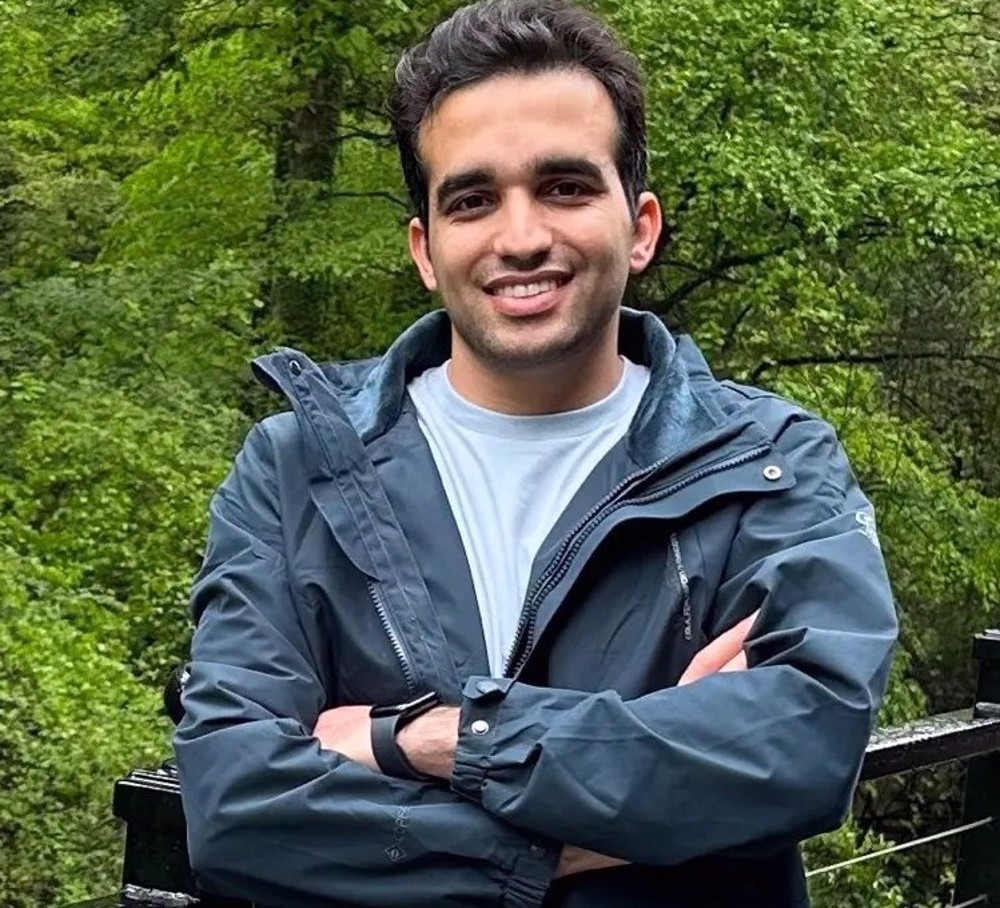
At the University of Cincinnati, several international students had their F-1 visas revoked by the DHS.
In a statement, UC President Neville G. Pinto confirmed that a “small number” of international students were affected.
While specific reasons for the revocations were not provided, President Pinto emphasized the university’s support for its international community and encouraged any impacted students to contact International Services for assistance.
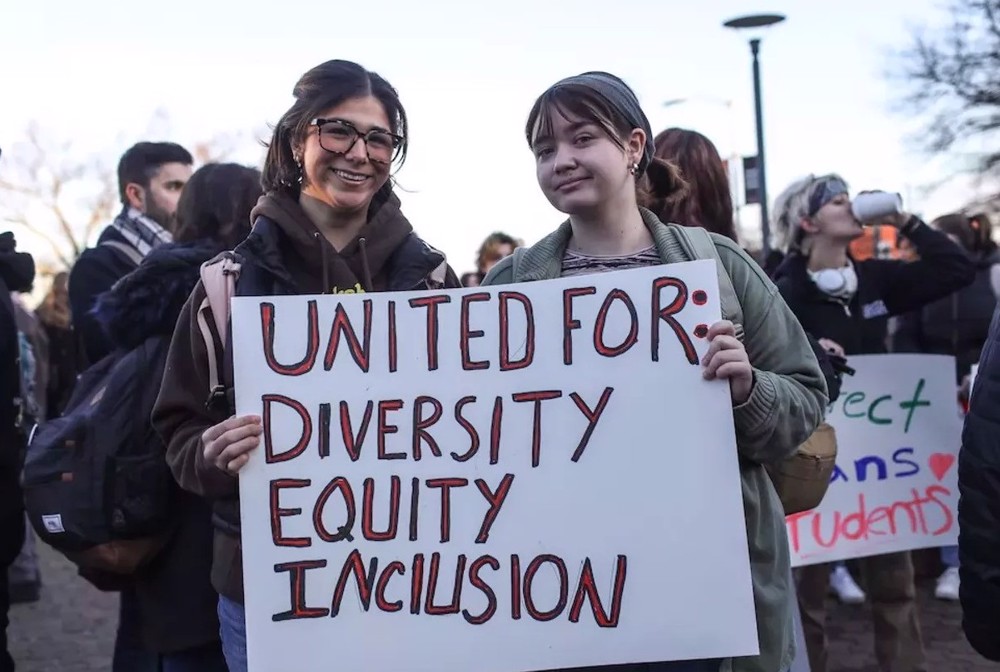
At the University of Oregon, an international student had their F-1 visa revoked by the DHS on March 28 due to “unspecified criminal charges.”
The university confirmed it was not notified in advance and has no information about the charges. The student was given 15 days to leave the US unless they could find a legal pathway to remain.
UO expressed concern over the situation, emphasizing its commitment to the student’s privacy.
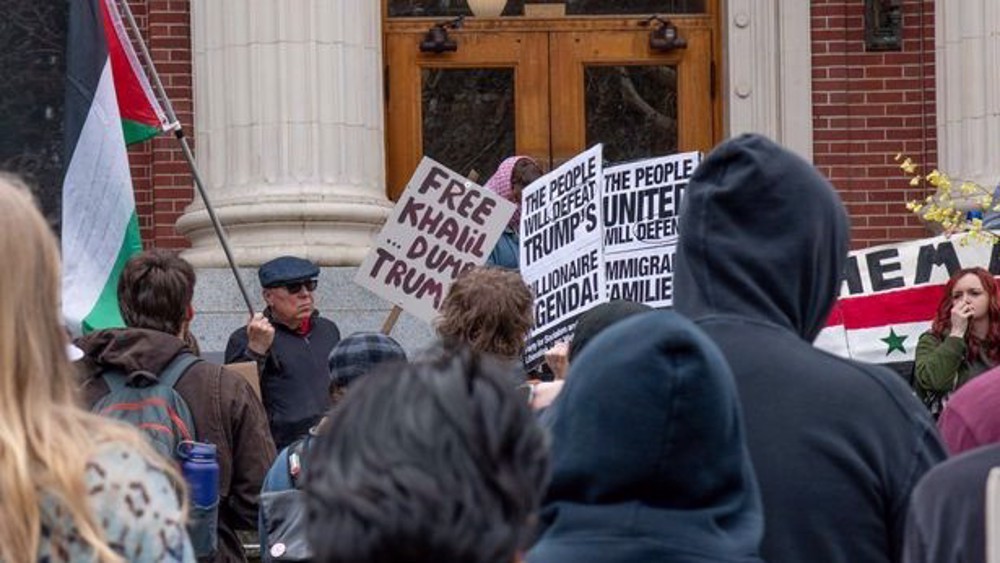
At the University of Texas at Austin (UT Austin), two international students had their legal status revoked following federal actions.
University staff discovered through routine checks of the federal Student and Exchange Visitor Information System (SEVIS) that the students’ statuses had been terminated.
One student from India lost his status on April 3, 2025, while another from Lebanon faced termination on March 28.
Both were graduate students participating in Optional Practical Training (OPT), and both students chose to leave the country voluntarily to avoid detention.
Later, UT Austin voiced concern over the cancellations and is actively seeking more information from federal agencies.
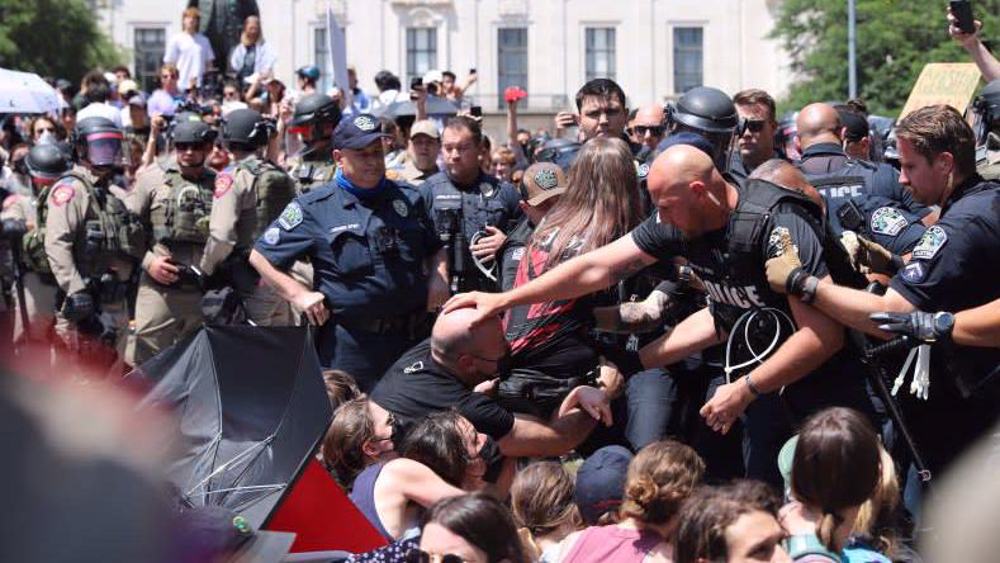
Across University of California (UC) campuses, several international students have had their visas revoked due to federal actions.
At UCLA, Chancellor Julio Frenk reported that visas were revoked for six current students and six former students in the OPT program. At UC Davis, officials confirmed visa terminations for seven students and five recent graduates.
“These numbers may change. Federal agents have not entered our campus, and no community members have been taken into custody,” the university said in a statement on Saturday.
At UC San Diego (UCSD), five students lost their F-1 visas without notice. A sixth student was detained at the border and deported. No explanation has been provided.
At UC Irvine, five international students were affected by visa revocations, though details remain unclear. At UC Berkeley, at least six individuals—two undergraduates, two graduate students, and two recent alumni—had their visas revoked. No reasons were given, but advocacy groups believe activism may be a factor.
At UC Santa Barbara, three cases of visa revocations were reported, though no further details have been released.
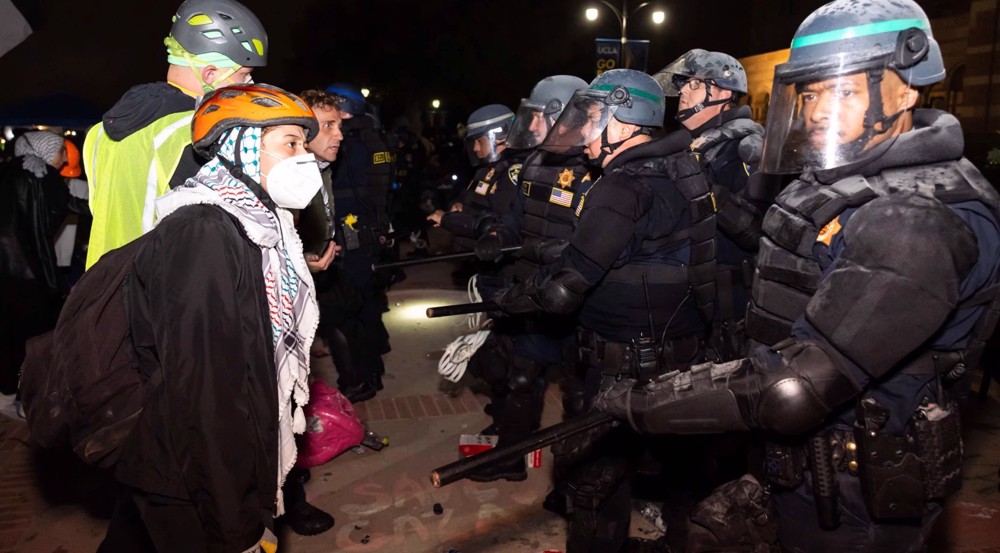
At Stanford University in California, four students and two recent graduates had their visas revoked. The revocations were discovered during a routine check of the SEVIS database.
Stanford officials stated they were unaware of the reasons behind the actions and confirmed that no immigration authorities had entered the campus.
The affected individuals were notified, and the university is offering external legal assistance. No specific allegations have been disclosed.
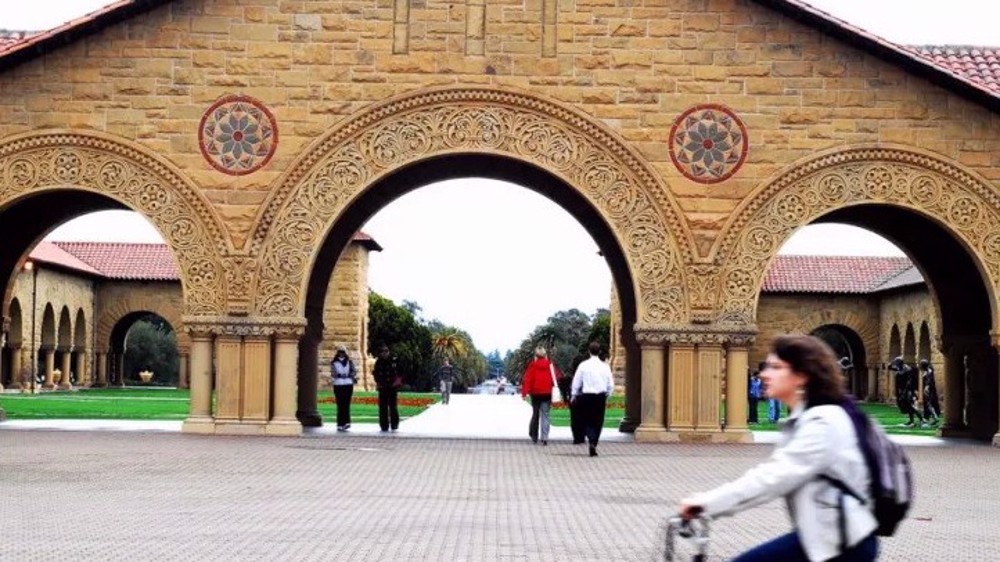
At Minnesota State University, Mankato (MSU Mankato), federal actions have affected several international students.
In early April 2025, President Edward Inch informed the campus community that the DHS had revoked the SEVIS records of five students.
Inch called the situation “unprecedented and troubling,” urging the community to handle it with sensitivity due to privacy protections.
Neither the students nor the university had received advance notice of the terminations.
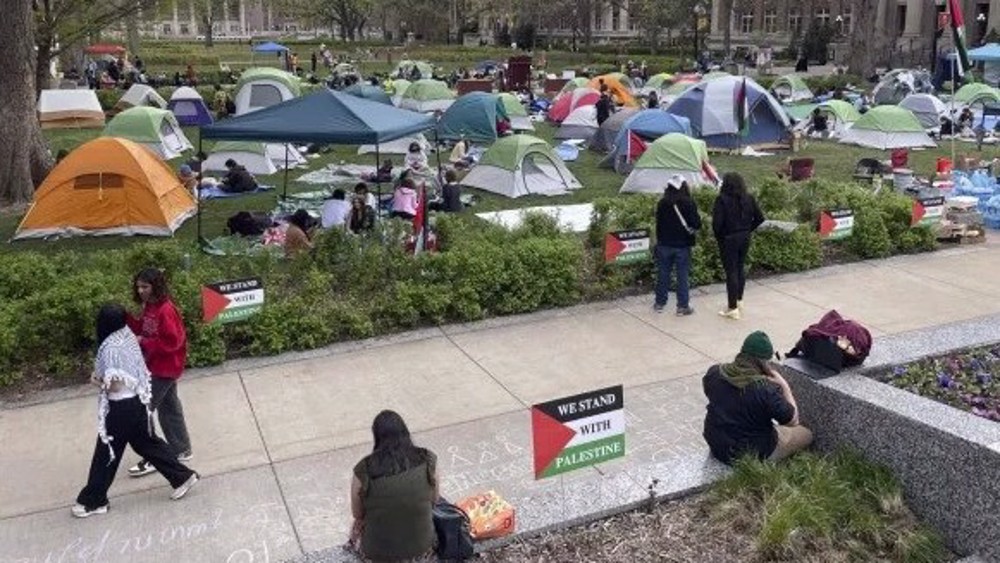
At Texas A&M University (TAMU), officials reported that three international students had their legal residency status terminated by DHS.
The university’s International Student and Scholar Services (ISSS) has been providing guidance on immigration policy and connecting the affected students with legal resources.
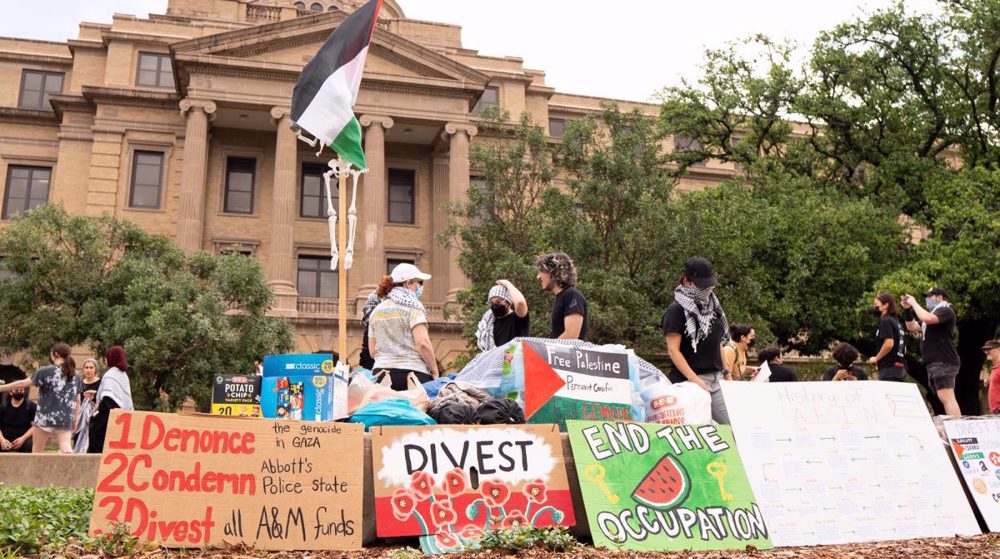
At the University of Minnesota, a mass deportation effort under the Trump administration led to the detention and visa revocation of an international graduate student.
On March 27, Dogukan Gunaydin, a Turkish citizen and graduate student, was detained by ICE agents near his residence as he was leaving for class.
He reported that the agents did not initially identify themselves, leaving him to fear he was being kidnapped.
The DHS later claimed his visa had been revoked due to a prior DUI conviction. However, his legal team argues that the revocation took place roughly seven hours after his arrest.
Gunaydin has filed a lawsuit challenging his detention, alleging violations of his constitutional rights and seeking immediate release.
The suit contends that the retroactive visa revocation and subsequent detention are unlawful and infringe on his rights to free speech and due process.
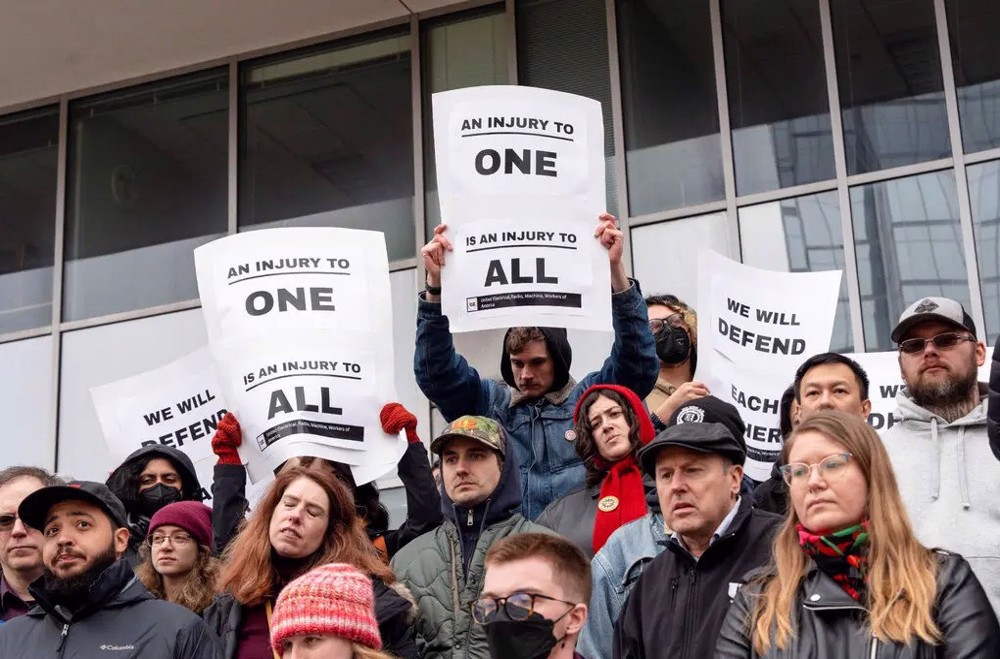
At Kent State University in Ohio, four individuals affiliated with the university had their visas revoked.
KSU President Todd Diacon announced that the DHS revoked the visas of one current international student and three recent graduates who were on OPT work permits.
The reasons behind the revocations remain undisclosed. The university expressed concern over the lack of transparency and absence of prior notice.
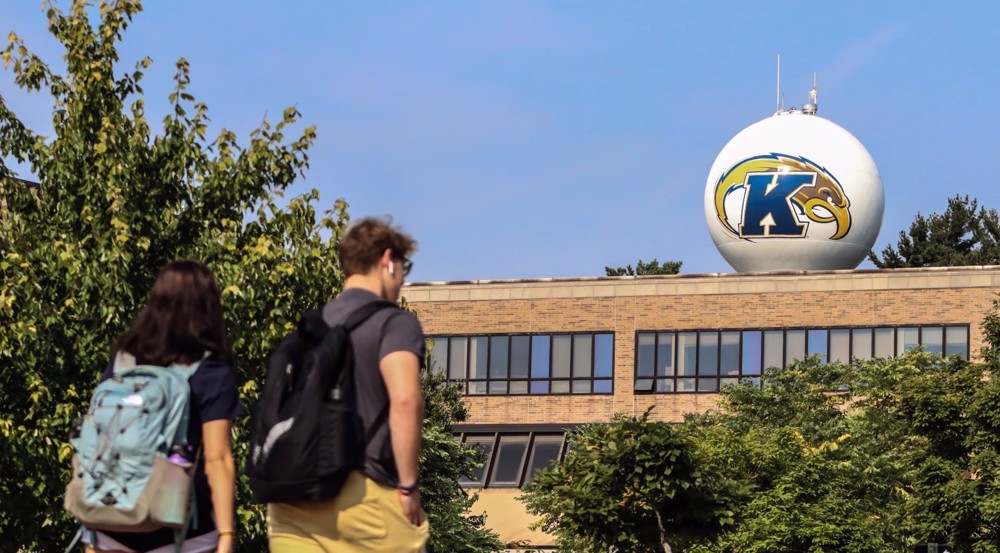
At the University of Akron, visas for two international students were revoked.
On April 4, 2025, UA confirmed the actions by DHS and stated that the affected students were now working with immigration attorneys to navigate the situation.
The university also reaffirmed its commitment to supporting the students during this difficult time.
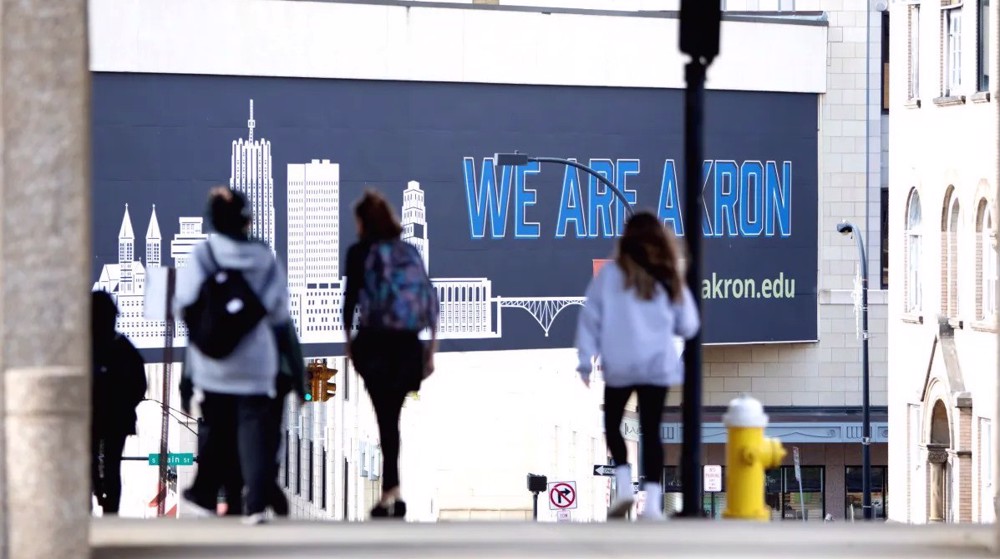
At Ohio State University, at least five international students had their F-1 visas revoked, according to university spokesperson Ben Johnson.
The reasons for the revocations remain unclear. The students are currently in the US and are working with attorneys and university officials to determine their next steps.
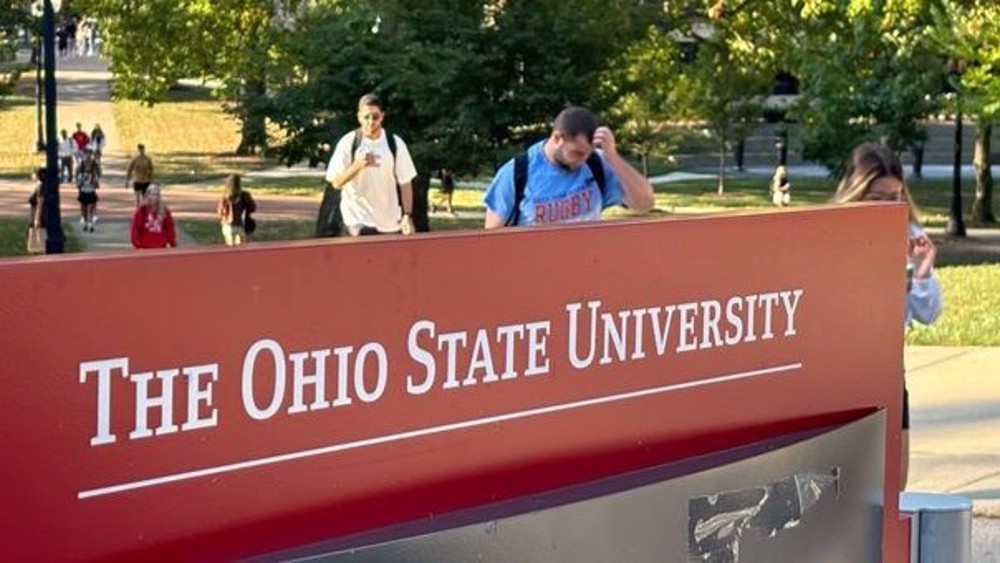
At the University of Massachusetts Amherst (UMass Amherst), five international students had their visas revoked and student statuses terminated by the federal government this past week.
Chancellor Javier Reyes shared the news on April 4, explaining that the university was not notified in advance and only discovered the revocations through proactive SEVIS database checks.
While the reasons are still unclear, similar cases nationwide have been linked to minor infractions or student activism.
UMass stated it is actively supporting the affected students, providing both on-campus and off-campus resources, including legal assistance.
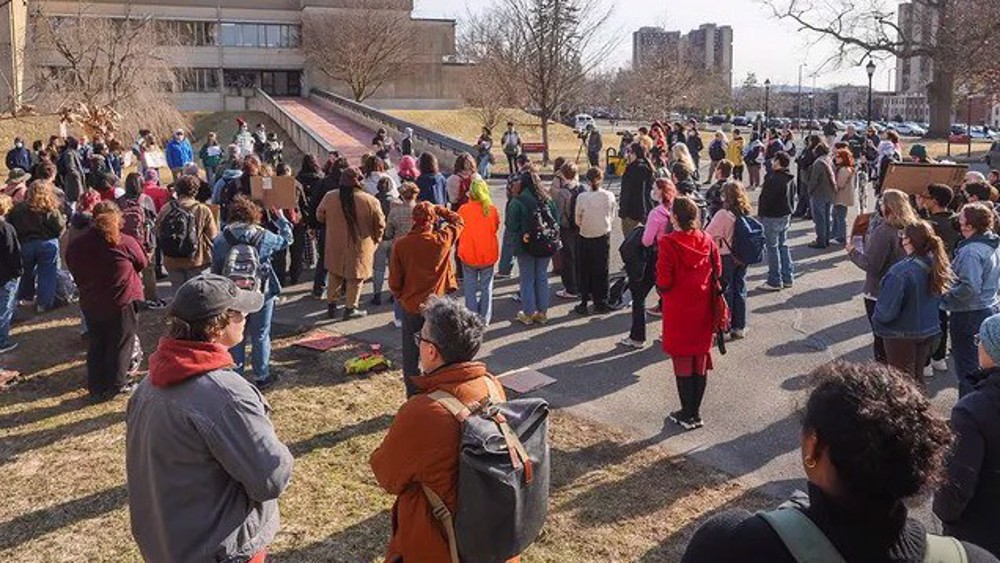
At Central Michigan University, the DHS abruptly terminated the visa records of several current and former international students without prior notice.
The university discovered the terminations during routine checks of the SEVIS. Neither CMU nor the affected students were informed in advance, and no explanation has been provided.
CMU President Neil MacKinnon called the situation “alarming” and noted that the university has no authority to reverse the decisions or offer legal representation.
Students have been advised to consult immigration attorneys. In response, the university has designated certain campus spaces where ICE agents must present judicial warrants to enter.
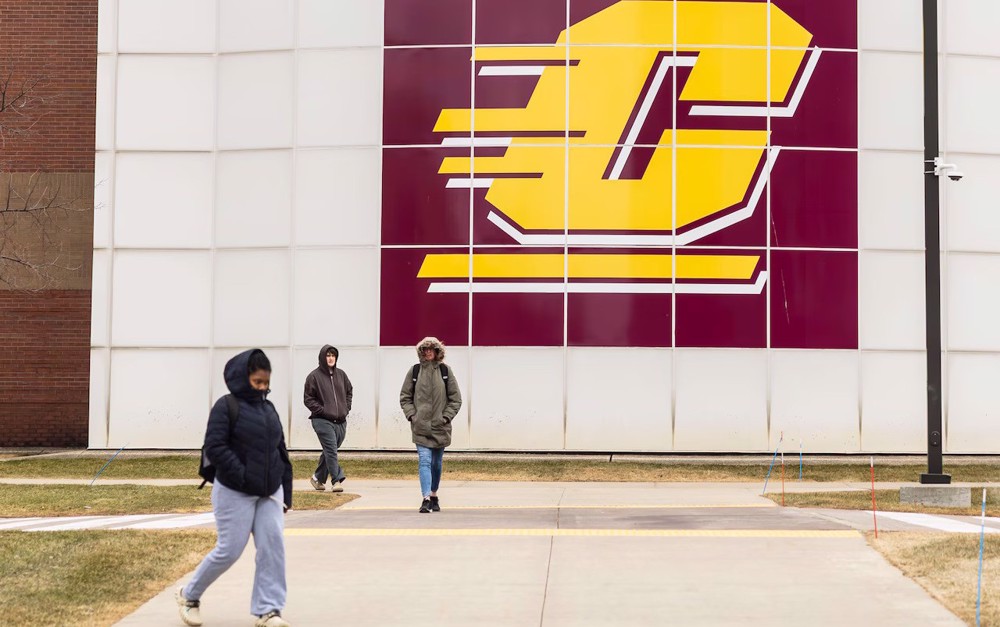
Several institutions across Minnesota have reported an increasing number of visa revocations involving international students. The reasons for the revocations remain undisclosed, and federal authorities have not commented. Here's what has been confirmed so far:
Ridgewater College (Hutchinson and Willmar campuses): One international student recently had their visa revoked. College officials have not released further information regarding the timing or cause.
St. Cloud State University: A “handful” of international students had their SEVIS records terminated by DHS. The university has stated it is working directly with affected students to provide support.
Metropolitan State University (St. Paul): One international student’s SEVIS record was terminated. It remains unclear whether their visa was also revoked, and no additional details have been disclosed by the university.

No comments:
Post a Comment